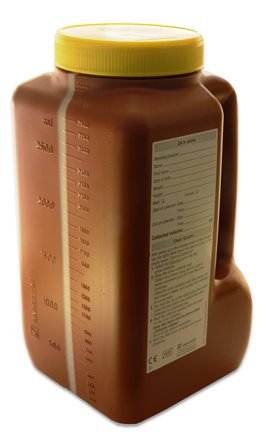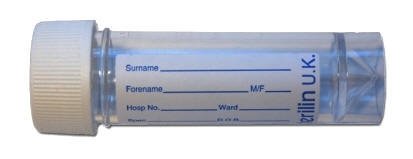Citrate (urine)
Chemical Pathology
Notes
Citrate is sometimes measured as part of the investigation of the underlying cause of renal stone disease. Patients having low citrate levels (hypocitraturia) are at increased risk of kidney stone formation. This is because citrate in the urine is an inhibitor of calcium salt crystallization. If hypocitraturia is identified dietary citrate can be replaced to decrease the probability of future stone formation.
Indications include recurrent stone formers, children, and patients with solitary kidneys and possibly selectively in first time stone formers at increased risk (e.g. family history, bone or bowel disease, chronic UTI, gout nephrocalcinosis)
Sample requirements
Preferred sample is a complete 24 hour urine collection taken into a 3L brown bottle:-

In young children a random urine sample taken into a 30mL Universal can be assayed for urine citrate:creatinine ratio

Storage/transport
Timed urine collections should be transported to the laboratory as soon after the urine collection is completed and preferably within 24 hours of completion.
Random urine samples should be sent promptly to the laboratory at ambient temperature.
Urine samples are acidified on receipt in the laboratory.
Required information
Relevant clinical details, including reason for the request. Please ensure start date and time and finish date and time of 24 hour urine collections are indicated on the urine bottle. This information is essential for samples to be analysed and results correctly interpreted.
Turnaround times
Samples are sent to a referral laboratory for analysis, with results expected back within 2 weeks.
Reference ranges
Urine 24h citrate
- Female 1.3 – 6.0 mmol/24h
- Male 0.6 – 4.8 mmol/24h
Urine citrate:creatinine ratio
- Female 0.11 – 0.55 mmol/mmol
- Male 0.04 – 0.33 mmol/mmol
Further information
To learn more visit NHS Choices: Kidney Stones
Page last updated 07/08/2019